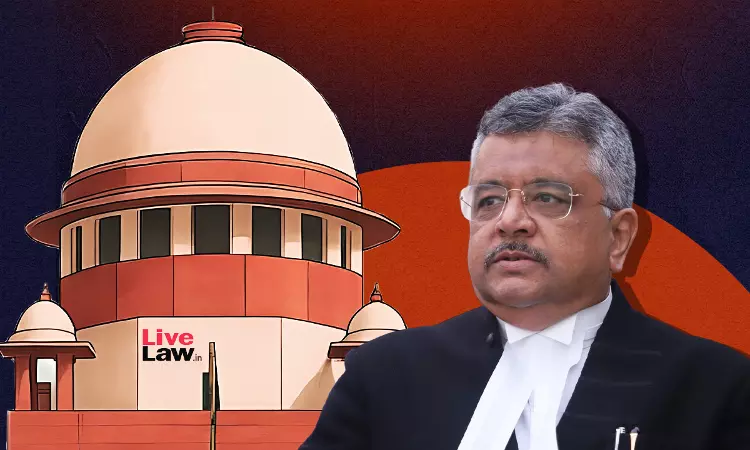- Home
- /
- Top Stories
- /
- Governor Has No Power To Sit On...
Governor Has No Power To Sit On Bills Endlessly; But Timelines Can't Be Laid Down : Centre To Supreme Court
Gursimran Kaur Bakshi
11 Sept 2025 12:26 PM IST
On the last day of the hearing of the Presidential Reference, the Solicitor General of India told the Supreme Court that Governors cannot sit on Bills endlessly. SG Tushar Mehta said that since Article 200 uses the expression "as soon as possible", the Governors cannot sit on bills "perennially or for three or four years." At the same time, SG opposed the Court laying down fixed timelines as...
On the last day of the hearing of the Presidential Reference, the Solicitor General of India told the Supreme Court that Governors cannot sit on Bills endlessly.
SG Tushar Mehta said that since Article 200 uses the expression "as soon as possible", the Governors cannot sit on bills "perennially or for three or four years." At the same time, SG opposed the Court laying down fixed timelines as a "straightjacket formula".
"While not taking an extreme situation that there can be perennial sitting over bills, there cannot be any straightjacket timelines too. It all depends on the subject matter of the bill," SG Tushar Mehta submitted before a 5-judge bench.
He stated that as per the empirical data at least from 2005, 90% of the bills are assented to within one month, and it is only in exceptional cases that there are delays due to the complex or controversial subject matter of the bill. Even in the case of Tamil Nadu, most bills were granted assent swiftly, except certain bills which were controversial, he added.
"On as soon as possible- at the outset, I make it clear that can't mean endlessly. Mylords prevented me from giving data but since 50 years, 90% bill assents are given within 1 month and even Tamil Nadu...it can't be that the Governor has power to sit endlessly over the bills. Every bill has context-specific issues, it might need consultation and collaboration with executive. Sometimes because of popular perception, the legislature is compelled to pass it, but executive request the Governor that we have passed it, you hold on...There are larger number of such contingencies and it is constitutional collaboration and consultation that has worked. Imposing timelines would be self-destructing, apart from the fact that it is not permissible. It can't be perennial sitting over it but this straightjacket formula may not be permissible," SG said.
SG argued that not specifying a timeline for the grant of assent to Bills must be read as a "Constitutional silence". Not specifying the timeline was a conscious Constitutional choice.
SG also submitted that one Constitutional functionary, which is the Court, cannot issue a writ of mandamus to another Constitutional functionary (Governor).
CJI Gavai in response said, "howsoever high one might be, law is above them."
CJI asked if a Constitutional functionary is not performing their functions, would the Court, as the custodian of fundamental rights, be powerless to act. CJI also added that he is a strict believer in the doctrine of separation of powers.
"I publicly say I strongly believer in the doctrine of separation of powers and though judicial activism has to be there, it can't run into judicial terrorism or adventurism. At the same time, if one wing of democracy fails in dischargig its duties, would the court which is the custodian of the constitution powerless and would sit idle?," CJI asked.
"Not only court, executive is also a custodian of the fundamental rights of citizens. Legislature is also custodian, all three organs...Issuing mandamus with regard to a legislatively discretionary functions of a coordinate constitutional functionary would violate the theory of separation of powers and this separation of power is a part of basic structure," SG submitted.
A bench comprising Chief Justice of India BR Gavai, Justice Surya Kant, Justice Vikram Nath, Justice PS Narasimha and Justice AS Chandurkar is hearing the matter.
Live updates from today's hearing can be followed here.
Reports of previous days :



